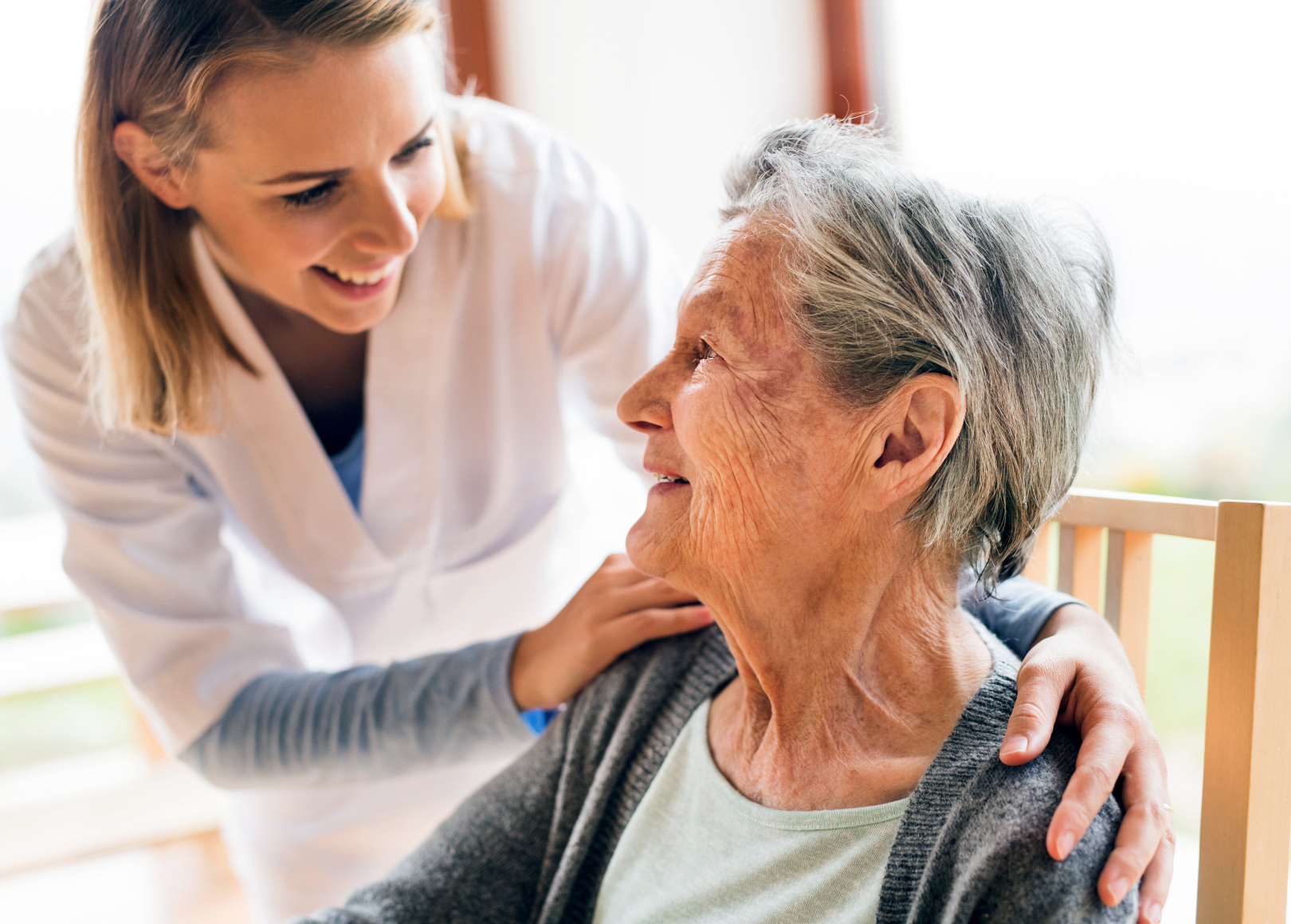Recovering from a stroke: Elderwood provides many options during this challenging time
Thousands of Americans suffer strokes each year. While many risk factors can contribute to stroke, the reality is that almost anyone, at any age, can suffer a stroke.
A stroke is a “brain attack” due to a loss of blood flow to part of the brain. It can occur as a result of a clot, referred to as an ischemic stroke, or a broken blood vessel in the brain, referred to as a hemorrhagic stroke. In either case, getting immediate care is critical. The sooner blood flow is restored, the less damage is done to the brain, and the more chance there is for recovery.
While stroke treatment may last only hours, recovery can be a much longer process, lasting weeks, months, or even years.
Since different parts of the brain control the body and its cognitive functions, stroke survivors often experience difficult physical and mental challenges as they recover, including depression, paralysis or weakness on one or both sides of the body, problems with thinking, awareness, attention, learning, judgment, and memory. Survivors can also have difficulty understanding speech or forming words, have difficulty expressing and controlling emotions, experience numbness or strange sensations, have problems chewing and swallowing, and have bladder and bowel control issues.
“After a stroke, the body has forgotten how to do simple tasks, but the more you are able to push yourself in the beginning, the more you are taking advantage of the initial six months that are so critical for your outlook and quality of life,” said Dennis Ng, corporate director for Rehabilitation Services at Elderwood. “The goal for patients and their loved ones is for a stroke survivor to leave rehab with the most independence possible.” Occasionally a long-term care or skilled-nursing facility is required; however, even when this is the case, rehab and goal setting are important.
Ng recommends that patients set goals for themselves and work with their therapists to achieve those goals. Rehab can include working with speech therapists to improve speech and cognition, physical therapists to relearn movement and coordination skills, and occupational therapists to help reduce any challenges with daily activities such as eating, drinking, dressing, bathing, reading, and writing. Sometimes medication or therapy are suggested for mental health conditions, as are patient and family support groups.
It’s important to remember that, although the immediate aftermath of a stroke is a challenging and scary time for patients, effective therapy and an understanding of what the road to recovery looks like will help reduce anxiety and provide motivation.
Elderwood subacute and rehabilitation services include cardiac rehab, oncology, orthopedic rehab, respiratory rehab (including a dedicated ventilator unit, wound care, and even express care to replace the need for visiting the emergency room). Visit www.elderwood.com/subacute-care-rehabilitationto learn more. Call 888-826-9663 to arrange a tour.












